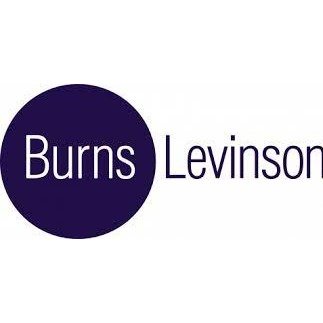Best Government Relations & Lobbying Lawyers in Boston
Share your needs with us, get contacted by law firms.
Free. Takes 2 min.
List of the best lawyers in Boston, United States
About Government Relations & Lobbying Law in Boston, United States
Government relations and lobbying involve advocating for specific policies or issues by influencing government officials at local, state, or national levels. In Boston, this field is especially significant due to the city's role as the capital of Massachusetts, housing various governmental bodies and legislative offices. Lobbyists in Boston work to build relationships with lawmakers and other public officials to ensure their clients' voices are heard in legislative and policy-making processes. The city’s rich political landscape makes it a hub for such activities, with numerous firms and professionals dedicated to navigating the intricate government relations framework.
Why You May Need a Lawyer
Individuals or organizations may seek legal assistance in government relations and lobbying for several reasons:
- Regulatory Compliance: Ensuring compliance with all state and federal regulations governing lobbying activities can be complex.
- Strategic Planning: Developing an effective strategy to influence legislation or governmental decisions requires legal expertise and a deep understanding of the political climate.
- Ethical Guidance: Navigating the ethical considerations in lobbying, such as avoiding conflicts of interest, is critical for maintaining integrity and legality.
- Communication and Negotiation: Skilled legal counsel can craft compelling messages and negotiate effectively with government officials.
- Litigation and Dispute Resolution: Representing clients in legal disputes related to governmental lobbying activities might require sophisticated legal strategies.
Local Laws Overview
In Boston, several laws directly impact government relations and lobbying practices. Key aspects include:
- Registration Requirements: Lobbyists must register with the Massachusetts Secretary of the Commonwealth, which oversees lobbying activities in the state.
- Disclosure Reports: Regular disclosure of lobbyist activities, expenditures, and incomes is mandated to ensure transparency.
- Gift Rules: Stringent rules govern gifts and contributions to public officials to prevent undue influence and corruption.
- State Ethics Commission: This body regulates lobbying ethics and can impose penalties for violations.
- Key Legislative Acts: The Massachusetts Lobbying Law outlines the requirements and prohibitions specific to lobbying practices within the state.
Frequently Asked Questions
What is the role of a government relations lawyer?
A government relations lawyer assists clients in influencing public policy, ensuring compliance with relevant laws, and maintaining ethical standards in lobbying efforts.
Do I need to register as a lobbyist in Massachusetts?
If you are paid to influence legislation or municipal decisions, you are likely required to register as a lobbyist with the Secretary of the Commonwealth.
What information must be disclosed as a lobbyist?
You must disclose your lobbying activities, expenditures, and any client payments related to lobbying efforts in regular reports.
How are gifts to public officials regulated in Boston?
Strict laws limit gifts and require disclosure to prevent undue influence on public officials.
What are the penalties for non-compliance with lobbying laws?
Penalties can include fines, suspension of lobbying privileges, and other disciplinary actions as mandated by the State Ethics Commission.
How can I evaluate if lobbying efforts are ethical?
Consult with a legal expert to review your strategies against ethical guidelines and ensure all practices comply with state and federal laws.
Is there a cap on how much I can spend on lobbying activities?
While there is no specific cap, all expenditures must be reported, and excessive spending could attract scrutiny from ethical oversight bodies.
Can I lobby at both state and federal levels simultaneously?
Yes, however, you must comply with both state and federal registration, reporting, and ethical guidelines.
What constitutes a conflict of interest in lobbying?
A conflict arises when personal or financial interests could influence your professional lobbying duties. Understanding and managing these conflicts is crucial.
Are there any specific Boston rules I should be aware of?
Beyond state law, some municipal regulations or ethical guidelines may also apply, so consulting a local law expert is advisable.
Additional Resources
Consider consulting the following resources for more information on government relations and lobbying in Boston:
- Secretary of the Commonwealth: Manages lobbyist registration and reporting in Massachusetts.
- State Ethics Commission: Oversees ethical issues related to lobbying activities.
- Local Bar Associations: Offer resources and referrals for legal experts in government relations.
- Professional Lobbying Groups: Provide networking and educational resources for those in the field.
Next Steps
If you require legal assistance with government relations and lobbying in Boston, consider the following steps:
- Assess Your Needs: Clearly define what legal help you require.
- Research Legal Experts: Look for lawyers or firms with experience in government relations and lobbying in Boston.
- Consult Multiple Sources: Speak with several attorneys to compare their expertise and fit for your needs.
- Check Credentials: Verify the attorney’s credentials and standing with the local bar association.
- Review Contracts Carefully: Before engaging a lawyer, ensure you understand the terms of representation and associated costs.
Lawzana helps you find the best lawyers and law firms in Boston through a curated and pre-screened list of qualified legal professionals. Our platform offers rankings and detailed profiles of attorneys and law firms, allowing you to compare based on practice areas, including Government Relations & Lobbying, experience, and client feedback.
Each profile includes a description of the firm's areas of practice, client reviews, team members and partners, year of establishment, spoken languages, office locations, contact information, social media presence, and any published articles or resources. Most firms on our platform speak English and are experienced in both local and international legal matters.
Get a quote from top-rated law firms in Boston, United States — quickly, securely, and without unnecessary hassle.
Disclaimer:
The information provided on this page is for general informational purposes only and does not constitute legal advice. While we strive to ensure the accuracy and relevance of the content, legal information may change over time, and interpretations of the law can vary. You should always consult with a qualified legal professional for advice specific to your situation.
We disclaim all liability for actions taken or not taken based on the content of this page. If you believe any information is incorrect or outdated, please contact us, and we will review and update it where appropriate.

















